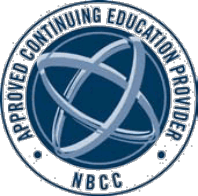Course summary
Practice Level: Intermediate
This course is part of a 3-course series on Substance Use Disorder Treatment and Family Therapy.
Substance use disorders (SUDs) are complex and far reaching, affecting not only the individual with SUD, but also their family. This series provides information that clinicians can use to provide SUD treatments, services, and programs that best meet the needs of those seeking addiction treatment as well as those supporting recovery. The courses in this SUD Treatment and Family Therapy series are:
Substance Use Disorder Treatment: Working with Families
Substance Use Disorder Treatment: Family Counseling Approaches
Substance Use Disorder Treatment: Family and Organizational Cultures
It is critical to consider individual and family cultures when providing substance use disorder (SUD) treatment for families. The unique features of an individual’s and their family’s culture often have a role in how SUDs affect families and treatment. Cultural factors such as cultural attitudes, spiritual/religious beliefs, and cultural contexts can influence help-seeking behaviors and treatment outcomes. The culture of the organization providing services is also an important consideration in treatment. An organization that adopts a family-centered approach to SUDs treatment will likely be more effective at providing addiction and recovery support services that meet a families’ full range of needs. This learning material uses Chapter 5 (Race/Ethnicity, Sexual Orientation, and Military Status) and Chapter 6 (Administrative and Programmatic Considerations) of Substance Abuse and Mental Health Services Administration’s (SAMHSA) publication TIP 39 Substance Use Disorder Treatment and Family Therapy.
The purpose of this learning material is to enhance clinician awareness of the roles of diverse family cultural contexts in service provision and intervention adaptions that consider diverse family backgrounds. This learning material explores ways for organizations to add family-based interventions to the existing services already offered to their constituency. Chapter 5 provides suggestions of how to incorporate culture into SUD treatment approaches, general questions to consider when offering SUD treatments to families, and recommendations on how to adapt existing SUD treatments to meet a family’s unique cultural needs. Chapter 6 identifies policies, procedures, and training that administrators and supervisors can implement to facilitate a family-centered culture within their organization. In this learning material, clinicians will learn how to identify ways to adapt family-based SUD treatment approaches, formats, and settings in order to increase the chances of good outcomes when working with racially/ethnically diverse families, LBGT families, and military families. They will also understand how administrators, supervisors, and providers can collaborate to improve the quality of family-based interventions by focusing on a family-centered approach.
Course Format
This course contains downloadable online lessons (PDF) and a practice test. When you’re ready, purchase the course by clicking the “Add To Cart” or “Enroll” button. This will let you take the test, complete the course evaluation and receive your certificate for CE credits.
Learning Objectives
- Explain ways in which the mental healthcare provider can provide culturally competent treatment within family-integrated SUD treatment.
- Describe cultural considerations that may help mental health providers treat African American, Latino, and American Indian and Alaska Native clients and families.
- Recognize the challenges and considerations involved in adapting family-based SUD interventions for LGBT families and military families.
- Identify administrative-level steps that a program may take to develop family-centered counseling competencies and attend to concerns related to diversity and treatment provision.
- Describe the roles of clinical supervision and routine outcome monitoring in a family-integrated SUD treatment program.
Course Syllabus
Race/Ethnicity, Sexual Orientation, and Military Status
- Scope
- Why Focus on Diverse Family Cultures?
- Culturally Responsive Family Counseling
- SUD Treatment for Specific Family Cultures
- Where Do We Go From Here?
Administrative and Programmatic Considerations
- Developing a Family-Centered Organizational Culture as an Administrator
- Incorporating Family Counseling and Family Programming
- Supportive Workforce Development
- Encouraging Collaboration as an Administrator
- Addressing Other Programmatic Considerations
- Where Do We Go From Here?
Authors
SAMHSA
The Substance Abuse and Mental Health Services Administration (SAMHSA) is an agency within the U.S. Department of Health and Human Services. SAMHSA leads public health efforts that advance the behavioral health of the nation. On samhsa.gov SAMHSA states that its mission is to reduce the impact of substance abuse and mental illness on communities in America.
William A. Cook, PhD
William A. Cook, Ph.D. is a licensed psychologist who worked for 15 years in private practice in Montana before leaving his practice to work full time as theDirector of CE4Less. He earned his doctorate degree from Texas A&M University, and focused much of his psychology practice in the area of child and family counseling, as well as psychological testing. Dr. Cook likes new challenges, foreign traveling to Africa and areas of Europe and the near East, scuba diving, running, music, and spending time with his family.
Accreditation Approval Statements
CE4Less.com is approved by the American Psychological Association to sponsor continuing education for psychologists. CE4Less.com maintains responsibility for this program and its content.
CE4Less.com, provider #1115, is approved as an ACE provider to offer social work continuing education by the Association of Social Work Boards (ASWB) Approved Continuing Education (ACE) program. Regulatory boards are the final authority on courses accepted for continuing education credit. ACE provider approval period: 08/08/21-08/08/24.
Social workers completing this course receive 3 cultural competence continuing education credits.

CE4Less.com has been approved by NBCC as an Approved Continuing Education Provider, ACEP No. 6991. Programs that do not qualify for NBCC credit are clearly identified. CE4Less.com is solely responsible for all aspects of the programs.
Courses have been approved by CE4Less.com, as a NAADAC Approved Education Provider, for educational credits. NAADAC Provider #91345 CE4Less.com is responsible for all aspects of the programming.
We are committed to providing our learners with unbiased information. CE4Less never accepts commercial support and our authors have no significant financial or other conflicts of interest pertaining to the material.


